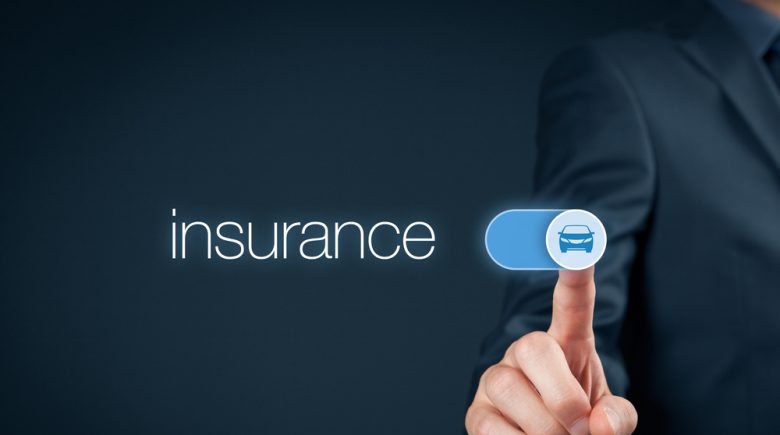Selecting the appropriate car insurance is a crucial financial decision that safeguards you against the financial repercussions of accidents, injuries, theft, vandalism, and natural disasters. This guide will assist you in choosing the most suitable car insurance company for your needs by examining several key factors.
Coverage Options and Features
The initial step in selecting a car insurance provider is to determine the coverage you require and the features you prefer. Car insurance policies typically fall into two categories: liability and physical damage.
Liability coverage, which is mandatory in most states, handles the costs of damage and injuries you may cause to others in an accident. It includes bodily injury liability, property damage liability, uninsured/underinsured motorist coverage, and personal injury protection.
Physical damage coverage, which is optional, covers repairs to your vehicle in case of an accident or other incidents. This includes collision, comprehensive, gap, and rental reimbursement coverages.
When evaluating car insurance companies, ensure they offer the coverage options and features that meet your needs. Review each policy’s limits, deductibles, and exclusions to ensure comprehensive protection.
Rates and Discounts
The cost of insurance policies and the availability of discounts are also significant. Insurance rates are influenced by various factors including your age, gender, marital status, driving history, vehicle type, location, and the coverage you choose.
To secure the best rates, it’s advisable to compare quotes from multiple providers. Look for companies that not only offer competitive rates but also provide substantial discounts that align with your circumstances. Additionally, check for flexible payment options and minimal fees to ensure affordability.
Customer Service and Claims Process
A company’s approach to customer service and its claims process is crucial. Effective customer service should include easily accessible representatives, user-friendly online tools, and responsive communication. The claims process should be straightforward, with fair settlement offers and a reliable repair network. Customer satisfaction and the efficiency of these processes are typically reflected in the company’s ratings from institutions like the National Association of Insurance Commissioners (NAIC) and J.D. Power.
Reputation and Reviews
The reputation of a car insurance company in the industry is also vital. Look for companies that have received accolades, are highly rated by bodies like Consumer Reports and U.S. News & World Report, and have a strong presence in the community. Companies with high ratings from reputable sources often reflect reliability and trustworthiness.
Conclusion
Choosing the right car insurance company involves careful comparison of coverage options, rates, customer service quality, and the company’s industry reputation. Utilizing tools like EverQuote can streamline the comparison process, helping you find a policy that fits your needs and budget. By considering these factors, you can make an informed decision and ensure you are adequately protected.
Thank you for considering this guide. We hope you find it helpful in navigating your car insurance options.
Selecting the appropriate car insurance is a crucial financial decision that safeguards you against the financial repercussions of accidents, injuries, theft, vandalism, and natural disasters. This guide will assist you in choosing the most suitable car insurance company for your needs by examining several key factors.
Coverage Options and Features
The initial step in selecting a car insurance provider is to determine the coverage you require and the features you prefer. Car insurance policies typically fall into two categories: liability and physical damage.
Liability coverage, which is mandatory in most states, handles the costs of damage and injuries you may cause to others in an accident. It includes bodily injury liability, property damage liability, uninsured/underinsured motorist coverage, and personal injury protection.
Physical damage coverage, which is optional, covers repairs to your vehicle in case of an accident or other incidents. This includes collision, comprehensive, gap, and rental reimbursement coverages.
When evaluating car insurance companies, ensure they offer the coverage options and features that meet your needs. Review each policy’s limits, deductibles, and exclusions to ensure comprehensive protection.
Rates and Discounts
The cost of insurance policies and the availability of discounts are also significant. Insurance rates are influenced by various factors including your age, gender, marital status, driving history, vehicle type, location, and the coverage you choose.
To secure the best rates, it’s advisable to compare quotes from multiple providers. Look for companies that not only offer competitive rates but also provide substantial discounts that align with your circumstances. Additionally, check for flexible payment options and minimal fees to ensure affordability.
Customer Service and Claims Process
A company’s approach to customer service and its claims process is crucial. Effective customer service should include easily accessible representatives, user-friendly online tools, and responsive communication. The claims process should be straightforward, with fair settlement offers and a reliable repair network. Customer satisfaction and the efficiency of these processes are typically reflected in the company’s ratings from institutions like the National Association of Insurance Commissioners (NAIC) and J.D. Power.
Reputation and Reviews
The reputation of a car insurance company in the industry is also vital. Look for companies that have received accolades, are highly rated by bodies like Consumer Reports and U.S. News & World Report, and have a strong presence in the community. Companies with high ratings from reputable sources often reflect reliability and trustworthiness.
Conclusion
Choosing the right car insurance company involves careful comparison of coverage options, rates, customer service quality, and the company’s industry reputation. Utilizing tools like EverQuote can streamline the comparison process, helping you find a policy that fits your needs and budget. By considering these factors, you can make an informed decision and ensure you are adequately protected.
Thank you for considering this guide. We hope you find it helpful in navigating your car insurance options.



